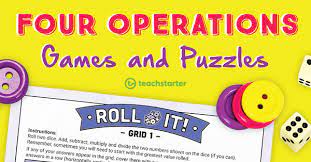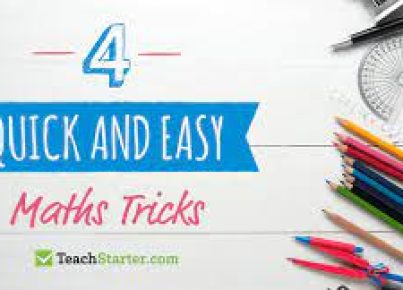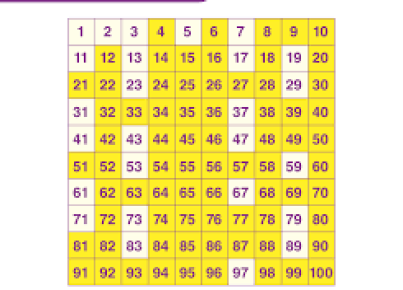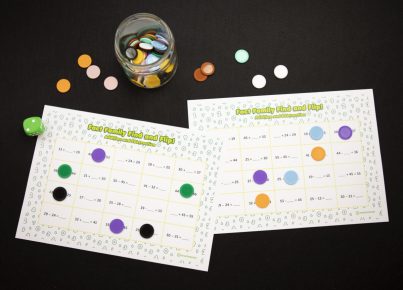Mathematics forms an integral part of educational curriculums around the world, establishing a foundation for critical thinking and problem-solving skills that students will carry forward into adulthood. Among the most essential elements of early mathematics education are the four operations: addition, subtraction, multiplication, and division. Games and puzzles designed around these operations not only enhance learning but also engage students in a fun and interactive way. This article delves into the importance of four operations games and puzzles in early math education.
At the core of these educational tools is the aim to make abstract concepts tangible. By using games that incorporate counting, combining, separating, equal groups, and sharing, children can physically manipulate objects or solve problems that represent mathematical theories in real-world contexts. Puzzles featuring mathematical operations challenge students to apply what they’ve learned in new and unique scenarios, ensuring a deeper understanding of the material.
One prime example is math board games that require players to use addition or subtraction as they progress along. These games often introduce a competitive edge that encourages repeated practice without the monotony that can come with traditional worksheets or flashcards. “Math Bingo,” for instance, promotes quick recall of basic operation facts, bolstering mental math skills.
Another effective tool is the use of card games such as “Math War” where players flip cards and perform an operation based on what’s drawn. These types of games support cognitive flexibility as children must quickly switch between different operations based on game rules.
Puzzles contribute to this learning environment by presenting challenges that often have one correct solution but several methods to arrive there. By engaging with puzzles like Sudoku or KenKen, which are built on principles of arithmetic operations and logic, students not only practice their math skills but also improve their reasoning and problem-solving abilities.
Moreover, puzzles serve an important role in differentiating instruction. They can be tailored to varying levels of difficulty to meet individual learner needs. Puzzle-based assignments allow stronger students to delve deeper into complexity while providing foundational practice for those needing more support.
Interactive apps take four-operation learning further by adding a layer of technology that resonates with today’s digitally native students. These apps can adapt in real-time to a child’s ability level, keeping them challenged just enough to stay engaged without becoming frustrated. Tools like “Prodigy” and “DragonBox” are prominent examples where game-based learning meets curriculum standards.
In conclusion, four operations games and puzzles offer a unique blend of entertainment and education which is critical in maintaining student engagement and supporting differentiated learning needs. They provide a practical approach where learners actively construct their mathematical knowledge through play. This method enables students to build confidence in their abilities while fostering a positive attitude toward mathematics—a crucial factor in ongoing academic success. As educational trends continue to evolve, integrating four operations games and puzzles into learning experiences remains an innovative strategy for enriching early mathematics education.





